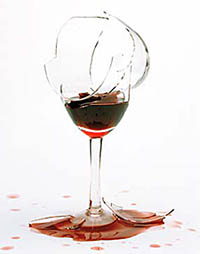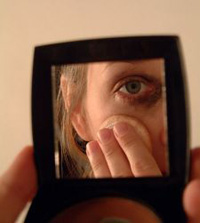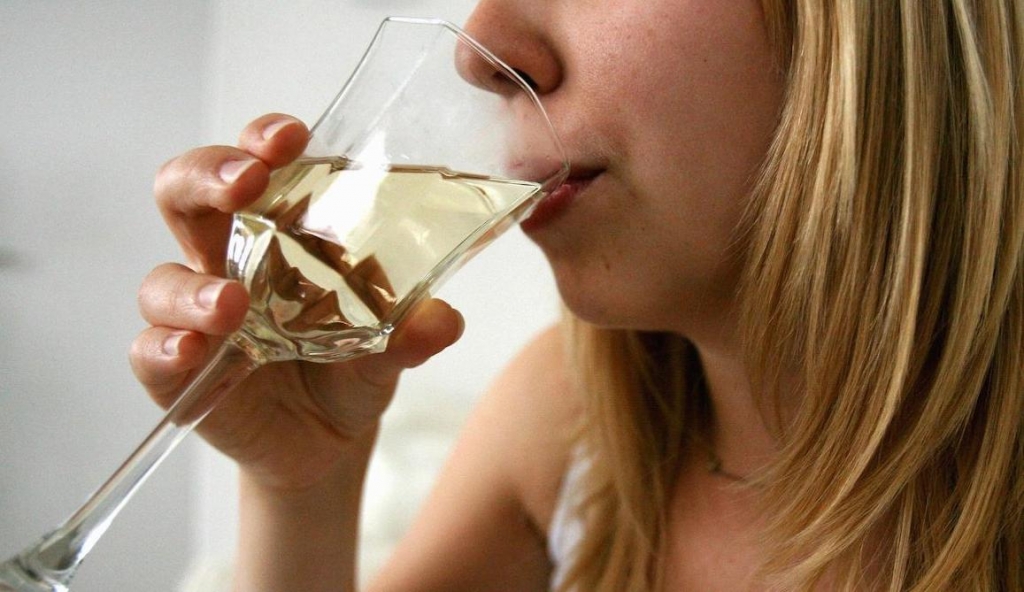Prevent a lapse becoming a relapse
You’re trying to stop drinking, and maybe you’ve been successful for a while. You’ve managed to control your alcohol intake to reasonable levels, or you’ve managed to stay completely sober for some time.
So then what do you do if you have a lapse? You drink again, far more than you intended to, waking the next morning feeling terrible, that you’ve let yourself down maybe?
How you view this lapse will determine how you react to it. If you see it as a sign of failure, then your self esteem will suffer, you’ll lose hope and end up believing that the changes you’re trying to make are not possible, that you’re simply an alcoholic, you just can’t help it. This sort of belief can then lead you to drink even more - so a single mistake turns into a full relapse.
Or you could look at your mistake as just another occasion where you slipped back into old routines for a while. But that needn’t be a reason for you to give up hope, just a flag to remind you that, for the moment at least, you need to be very vigilant about your behaviour.
Observe your own feelings and thoughts, be aware of when you’re in the sort of mood where you usually want a drink - and do something about it, something different. (See - Dealing with Cravings). Acknowledge that you’re feeling weak or emotional - talk to someone about how you’re feeling generally. Don’t try to struggle through it alone.
Don’t forget, the best way to handle your feelings is to express them - talk about it. That way a lapse can remain just that, something you can learn from rather than an excuse to relapse completely.


 Alcohol is a common feature in abusive relationships, so if your partner is an
Alcohol is a common feature in abusive relationships, so if your partner is an  You are probably well aware of the effects of your drinking on your life - hangovers, inability to concentrate, relationship problems, poor health, weight gain etc. However, if you are a parent, have you given enough consideration to the effects of alcoholism on your children?
You are probably well aware of the effects of your drinking on your life - hangovers, inability to concentrate, relationship problems, poor health, weight gain etc. However, if you are a parent, have you given enough consideration to the effects of alcoholism on your children? The cognitive therapy approach to alcoholism treatment is not concerned with analysing your childhood, or finding out if you have an ‘
The cognitive therapy approach to alcoholism treatment is not concerned with analysing your childhood, or finding out if you have an ‘ Different people have different levels of self esteem - some people think they’re wonderful, some people think they’re worthless. Whether other people would agree with either of those judgements is a different matter.
Different people have different levels of self esteem - some people think they’re wonderful, some people think they’re worthless. Whether other people would agree with either of those judgements is a different matter. So you’ve stopped drinking, or maybe you’re just not doing it every day now, and you want to know how to prevent yourself from relapsing, or (if you want to keep it simple) how to make sure you don’t drink today.
So you’ve stopped drinking, or maybe you’re just not doing it every day now, and you want to know how to prevent yourself from relapsing, or (if you want to keep it simple) how to make sure you don’t drink today.
 For most people with some sort of alcoholism, their over use of alcohol has arisen from too many unpleasant emotions in their lives.
For most people with some sort of alcoholism, their over use of alcohol has arisen from too many unpleasant emotions in their lives. Coping with cravings is the key to tackling alcoholism. If you can manage to not give in to your cravings, or you can adapt so that you don’t get so many cravings in the first place, then there is no more addiction is there?
Coping with cravings is the key to tackling alcoholism. If you can manage to not give in to your cravings, or you can adapt so that you don’t get so many cravings in the first place, then there is no more addiction is there?